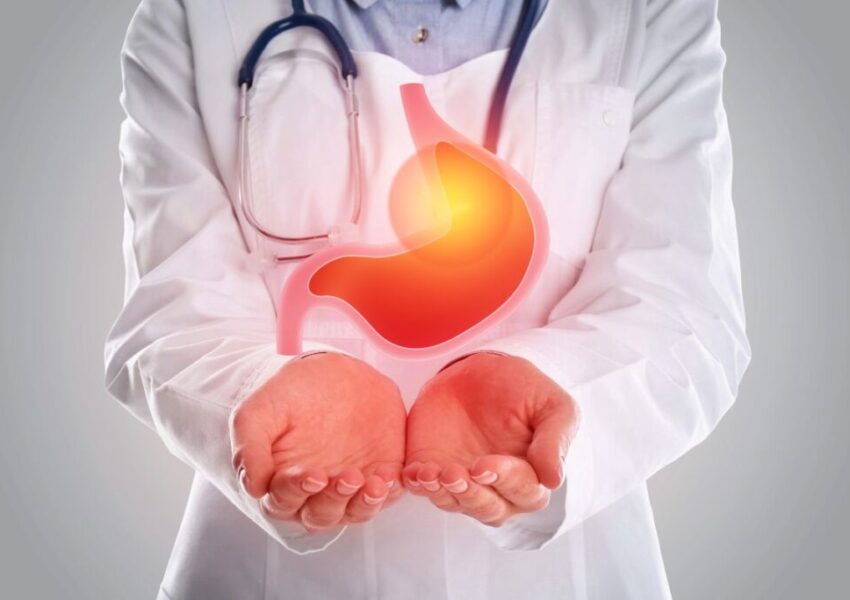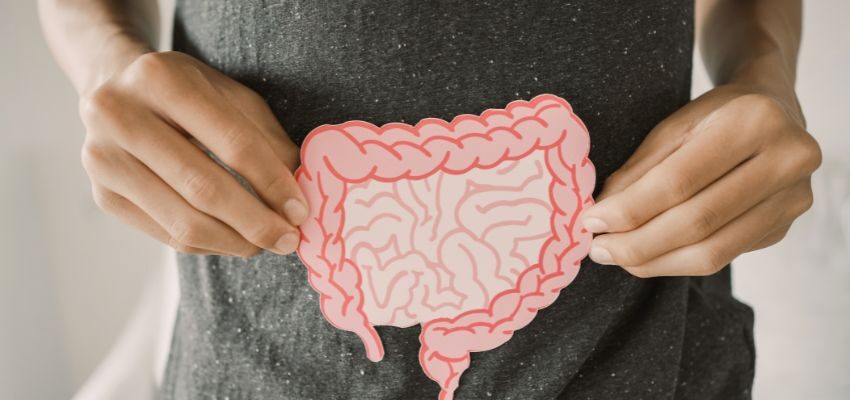5 Things Your Poop Can Tell You About Your Health

Published November 30, 2023
Your stool harbors valuable information about your health, yet its silent messages often go unnoticed. Imagine disregarding a vital messenger that holds critical insights into your well-being. Ignoring these signals could result in overlooking crucial clues about the intricate workings of your body.
A question you might ask—What does poop say about your health? Understanding what your stool can tell you is important for taking care of yourself. Checking on your stool can provide valuable insights into your digestive system’s state. It may be in the best shape or experiencing imbalances.
Identifying The Traits Of Healthy Stool
A healthy stool is usually medium to dark brown because of bilirubin, a pigment produced when the liver breaks down red blood cells. The color shows that digestion is working well, breaking down food and absorbing nutrients.
Maintaining consistent and healthy stool is of utmost importance. The appearance should be soft and well-formed, like a sausage or snake. This shows that there’s a good balance of water and fiber in the digestive system. The consistency ensures effortless passage during bowel movements, avoiding strain or discomfort.
A healthy stool usually doesn’t have a strong odor. The smell comes from bacteria during digestion. While a mild scent is expected, a foul smell may indicate an imbalance of gut bacteria or digestion.
Monitoring stool characteristics is crucial for understanding digestive health. Changes in color or consistency can signal underlying health issues. Regular observation allows timely action if any irregularities are present.

Using The Bristol Stool Chart
The Bristol stool chart is a visual tool that categorizes seven types of stools based on appearance and consistency. Knowing these categories can provide valuable insights into digestive health.
- Type 1 (separate hard lumps resembling nuts). Stools falling into this category are indicative of severe constipation. They are firm and dry, posing a challenge during elimination, suggesting insufficient fiber or hydration in the diet.
- Type 2 (sausage-shaped but lumpy). These stools are slightly more formed than Type 1 but still suggest constipation. They may occur due to a slower transit time in the .
- Type 3 (Sausage-shaped with cracks on the surface). Although these stools are well-shaped, they can still suggest constipation. This might also mean dehydration or a low fiber intake.
- Type 4 (Smooth, soft, and snake-like). This type of stool is the perfect example of a healthy one. It’s easy to pass and shows that you have enough fiber, water, and good digestion.
- Type 5 (Soft blobs with distinct edges). This stool type is usually easy to pass but could suggest a low fiber intake or mild diarrhea.
- Type 6 (Fluffy pieces with ragged perimeters, a mushy poop). The stools are usually loose. This can mean mild to moderate diarrhea. It might be due to infections or changes in diet.
- Type 7 (Watery, entirely liquid). This classification signifies a runny consistency, indicative of severe diarrhea. It may also raise concerns about potential underlying infections or digestive disorders.
The Bristol stool chart helps you know about the different types of poop and understand how your digestive system is doing.

Key Indicators Of Your Health Based On Your Stool
So, you might ask—what does poop say about your health? We’ll take a closer look at the appearance of stool to find out. The composition of your stool offers indications about your health. Here are several essential factors to be mindful of.
Rock And Pebble-Like Stools
A person with stool resembling rocks or pebbles may indicate insufficient dietary fiber. Remember that fiber is vital in adding bulk to stool, facilitating smooth bowel movements. Poor fiber intake can lead to constipation, causing hard and challenging-to-pass stools. Dealing with this issue involves incorporating a variety of nuts, whole grains, vegetables, and legumes into your diet.
Color Changes
Any alterations to the stool color might point to issues in your digestive tract. It’s a common concern for many individuals. The foods you eat and the bacteria in your colon can cause these changes, including food coloring. Most of the changes in stool color aren’t cause for concern. An exception is when the poop appears black or bloody, indicating possible issues with the digestive system.

Black And Tarry Stools
Iron supplements are the usual culprit if your stools turn black. In some cases, the cause can be a medication that contains bismuth. However, it could also mean there’s bleeding in the stomach or small intestine.
Greasy Stools
If your stool is greasy and hard to flush, it could mean your body cannot digest fat well. The changes could be caused by an infection, celiac disease, or a pancreatic issue.
Pencil-Thin Stools
A stool that turns out excessively thin isn’t usually a cause for alarm. In most cases, it’s likely due to muscle contractions in the large intestines, as it aids in concentrating waste. If your stool suddenly becomes thin and stays that way, it could mean a blockage in your colon. You should see a doctor right away.

How To Maintain Healthy Bowel Movements
Maintaining healthy bowel movements is crucial for overall well-being. Here are some effective strategies to support optimal digestive health.
A Balanced Diet With Fiber-Rich Foods
Adding fiber-rich foods such as fruits, vegetables, legumes, whole grains, and nuts to your diet is essential. Dietary fiber adds volume to stool, promoting regular bowel movements and preventing constipation. Make an effort to maintain a daily intake of 25-30 grams of fiber for optimal digestive health.
Proper Hydration
It’s important to drink enough water to soften stool and help it move smoothly through your digestive system. It’s recommended to drink up to 8 cups of water, but this can vary based on personal needs and the environment.
Regular Exercise And Physical Activity
Regular physical activity can have a beneficial impact on digestion. Exercise stimulates bowel movements by facilitating muscle contractions in the intestines. Doing activities like jogging, walking, or yoga can help regulate bowel function.
Maintain A Consistent Bowel Movement Routine
Establishing a regular routine for going to the bathroom can help your body learn to eliminate waste regularly. It’s best to go to the restroom every day, especially after meals, when digestion is most active.
Limit Intake Of Certain Foods Or Substances
Some foods can disrupt digestion. Eating too much processed, fatty, or sugary foods can slow down digestion. Try to moderate the intake of these foods to promote better digestive health.

Probiotics And Gut Health
Incorporating probiotics, whether as supplements or fermented foods like yogurt, kimchi, or sauerkraut, may aid in maintaining a healthy balance of gut bacteria. Probiotics play a vital role in improving digestion and promoting optimal gut health.
When To See A Doctor About Your Stool
Every person will experience digestive issues now and then. If you’re wondering what causes mushy poop in adults, one might be a reaction to a new food. Sometimes, symptoms can suggest a bigger problem and you should see a doctor.
If you experience any of the following, it’s advisable to see a doctor right away:
- Persistent changes in the stool, such as very thin, stinky, and often floats
- Recurrent episodes of constipation or diarrhea
- Severe stomach pain and indigestion
- Unexplained weight loss
- The stool takes on a red or black appearance that doesn’t have a connection to your diet
Set an appointment with a doctor to determine what’s going on with your digestive health.

Conclusion: Exploring The Importance Of Stool In Health
What does poop say about your health? It’s high time to give your stool attention. The stool, often overlooked yet vital, is a crucial indicator of your health. You can learn important clues about your digestive health by monitoring its characteristics. These clues should never be ignored. Don’t forget, you have the ability to prioritize your digestion and overall health. If you see changes in your bowel movements, see a healthcare professional right away. Take on a proactive approach and focus on your digestive health.
Benefit From The Latest Advancements In Probiotic Science With Bionaze
Bionaze is a proprietary blend of probiotics proven to promote ear, nose, and throat health, improve digestion, and support your immune system. The active ingredients BLIS K12, and BL-04 are considered among the best probiotics according to science.
Get 25% Off Your First Order when you use BIO25 at checkout!

This Content Has Been Reviewed For Factual Accuracy
This content has undergone thorough fact-checking by our team of internal experts. Learn more about the meticulous editorial standard for our website here.
ADVERTISEMENT

About The Author
I am Tracy Gorman, a seasoned writer passionate about creating helpful content. I can delve into any niche and produce valuable articles with my expertise. Beyond writing, I am an avid learner with a passion for digital marketing. During my leisure time, I enjoy immersing myself in literature, experimenting with fashion, staying active, exploring culinary delights, indulging in movies, savoring music, and socializing. And, it’s safe to say, I love cats!




